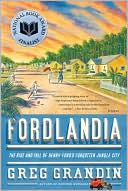Category Books
- Fiction Books & Literature
- Graphic Novels
- Horror
- Mystery & Crime
- Poetry
- Romance Books
- Science Fiction & Fantasy
- Thrillers
- Westerns
- Ages 0-2
- Ages 3-5
- Ages 6-8
- Ages 9-12
- Teens
- Children's Books
- African Americans
- Antiques & Collectibles
- Art, Architecture & Photography
- Bibles & Bible Studies
- Biography
- Business Books
- Christianity
- Computer Books & Technology Books
- Cookbooks, Food & Wine
- Crafts & Hobbies Books
- Education & Teaching
- Engineering
- Entertainment
- Foreign Languages
- Game Books
- Gay & Lesbian
- Health Books, Diet & Fitness Books
- History
- Home & Garden
- Humor Books
- Judaism & Judaica
- Law
- Medical Books
- New Age & Spirituality
- Nonfiction
- Parenting & Family
- Pets
- Philosophy
- Political Books & Current Events Books
- Psychology & Psychotherapy
- Reference
- Religion Books
- Science & Nature
- Self Improvement
- Sex & Relationships
- Social Sciences
- Sports & Adventure
- Study Guides & Test Prep
- Travel
- True Crime
- Weddings
- Women's Studies
Fordlandia: The Rise and Fall of Henry Ford's Forgotten Jungle City »

Authors: Greg Grandin
ISBN-13: 9780312429621, ISBN-10: 0312429622
Format: Paperback
Publisher: Picador
Date Published: April 2010
Edition: (Non-applicable)
Author Biography: Greg Grandin
Greg Grandin is the author of Empire’s Workshop, The Last Colonial Massacre, and the award-winning The Blood of Guatemala. An associate professor of Latin American history at New York University, and a Guggenheim fellow, Grandin has served on the United Nations Truth Commission investigating the Guatemalan Civil War and has written for the Los Angeles Times, The Nation, The New Statesman, and The New York Times.
Book Synopsis
The stunning, never before told story of the quixotic attempt to recreate small-town America in the heart of the Amazon
In 1927, Henry Ford, the richest man in the world, bought a tract of land twice the size of Delaware in the Brazilian Amazon. His intention was to grow rubber, but the project rapidly evolved into a more ambitious bid to export America itself, along with its golf courses, ice-cream shops, bandstands, indoor plumbing, and Model Ts rolling down broad streets.
Fordlandia, as the settlement was called, quickly became the site of an epic clash. On one side was the car magnate, lean, austere, the man who reduced industrial production to its simplest motions; on the other, the Amazon, lush, extravagant, the most complex ecological system on the planet. Ford’s early success in imposing time clocks and square dances on the jungle soon collapsed, as indigenous workers, rejecting his midwestern Puritanism, turned the place into a ribald tropical boomtown. Fordlandia’s eventual demise as a rubber plantation foreshadowed the practices that today are laying waste to the rain forest.
More than a parable of one man’s arrogant attempt to force his will on the natural world, Fordlandia depicts a desperate quest to salvage the bygone America that the Ford factory system did much to dispatch. As Greg Grandin shows in this gripping and mordantly observed history, Ford’s great delusion was not that the Amazon could be tamed but that the forces of capitalism, once released, might yet be contained.
The Barnes & Noble Review
In 1927, Henry Ford, vast in determination, ingenuity, and protuberant opinion, and increasingly contradictory in his fantasies, moved forward with his plans for a settlement in Brazil's Amazonian jungle, soon known as Fordlandia. Initially inspired by the carmaker's alarm over a proposed British and Dutch rubber cartel, the project was an experiment in applying the principles of mass production to agriculture, specifically rubber plants and their tapping. But it was also an attempt to create a "great industrial city" in which a harmony of mechanization and nature would give rise to a better and, as Ford firmly believed, Emersonian way of life. Ford's distaste for expertise and precedent led him to ignore the experience of companies that had successfully exploited the tropics. He was swindled and misled in the land deal and pushed his own views on everything, imposing industrial regimentation and American ideas of a decent life -- punctuality, indoor plumbing, canned peaches, square dancing, and the like -- upon a pre-industrial people. The result was a failure with many installments, but it paled before the fiasco of attempting to subdue the gigantically vital, implacable jungle with its legion of parasites. Growing rubber trees according to Dearborn, Michigan's, notions of efficiency was never achieved, and the effort was made all the more futile by tumbling rubber prices. In a sense the entire enterprise was a sideshow, darkly comic at times, in the progress of global capitalism; but under Grandin's complex scrutiny and eye for character, it also provides a multifaceted, if ghoulishly lighted, spectacle of Henry Ford's preoccupations and disenchantment with America as it had come to be in the 1920s and 1930s. --Katherine A. Powers
Table of Contents
Subjects
 Business Biography
Business Biography  Business Biography - Specific Individuals
Business Biography - Specific IndividualsBiography
 Business Biography
Business Biography  Industrialists - Biography
Industrialists - BiographyBiography
 All Biography
All Biography  Business Biography
Business BiographyBusiness Books
 Business Biography
Business Biography  Business Biography - Specific Individuals
Business Biography - Specific IndividualsBusiness Books
 Business Biography
Business Biography  Industrialists - Biography
Industrialists - BiographyBusiness Books
 Business History
Business History  Business History - General & Miscellaneous
Business History - General & MiscellaneousBusiness Books
 International Business
International Business  International Business - General & Miscellaneous
International Business - General & MiscellaneousHistory
 Latin American History
Latin American History  South American History
South American HistoryNonfiction
 Transportation
Transportation  Automobiles
AutomobilesNonfiction
 All Nonfiction
All Nonfiction  Business Biography
Business BiographyNonfiction
 Biography
Biography  Business Biography
Business BiographyNonfiction
 Biography
Biography  All Biography
All BiographyNonfiction
 History
History  Latin American History
Latin American History
